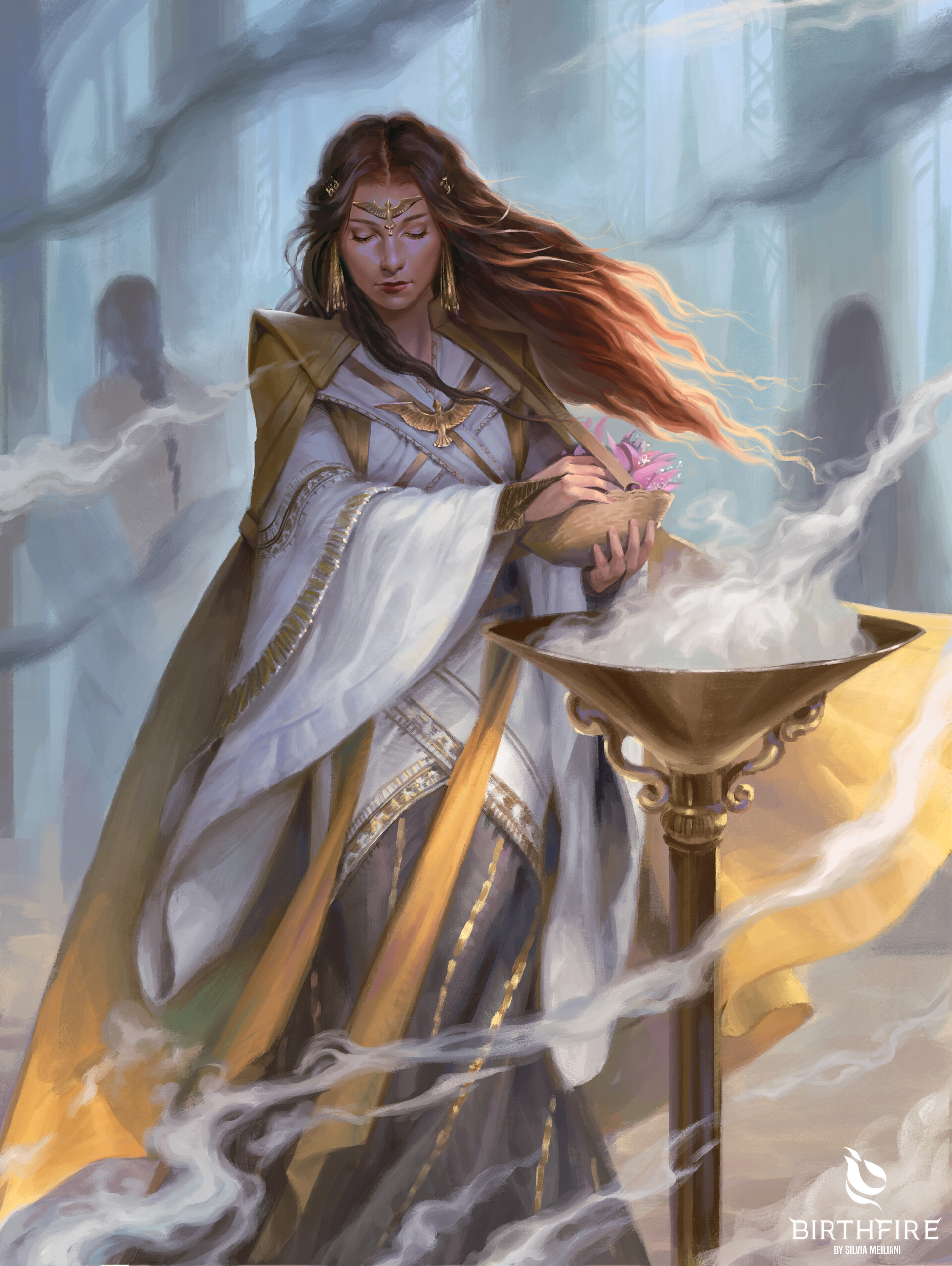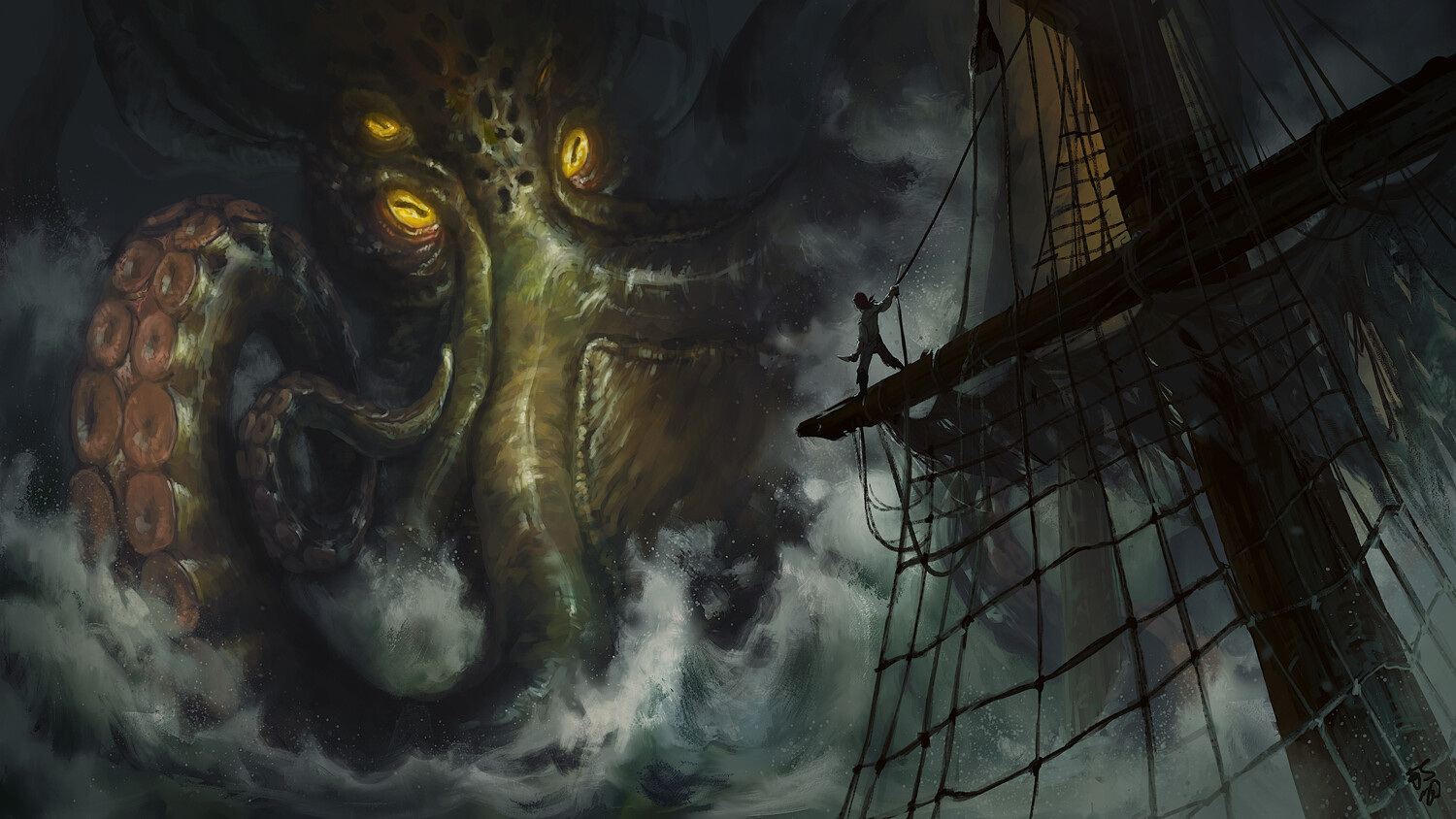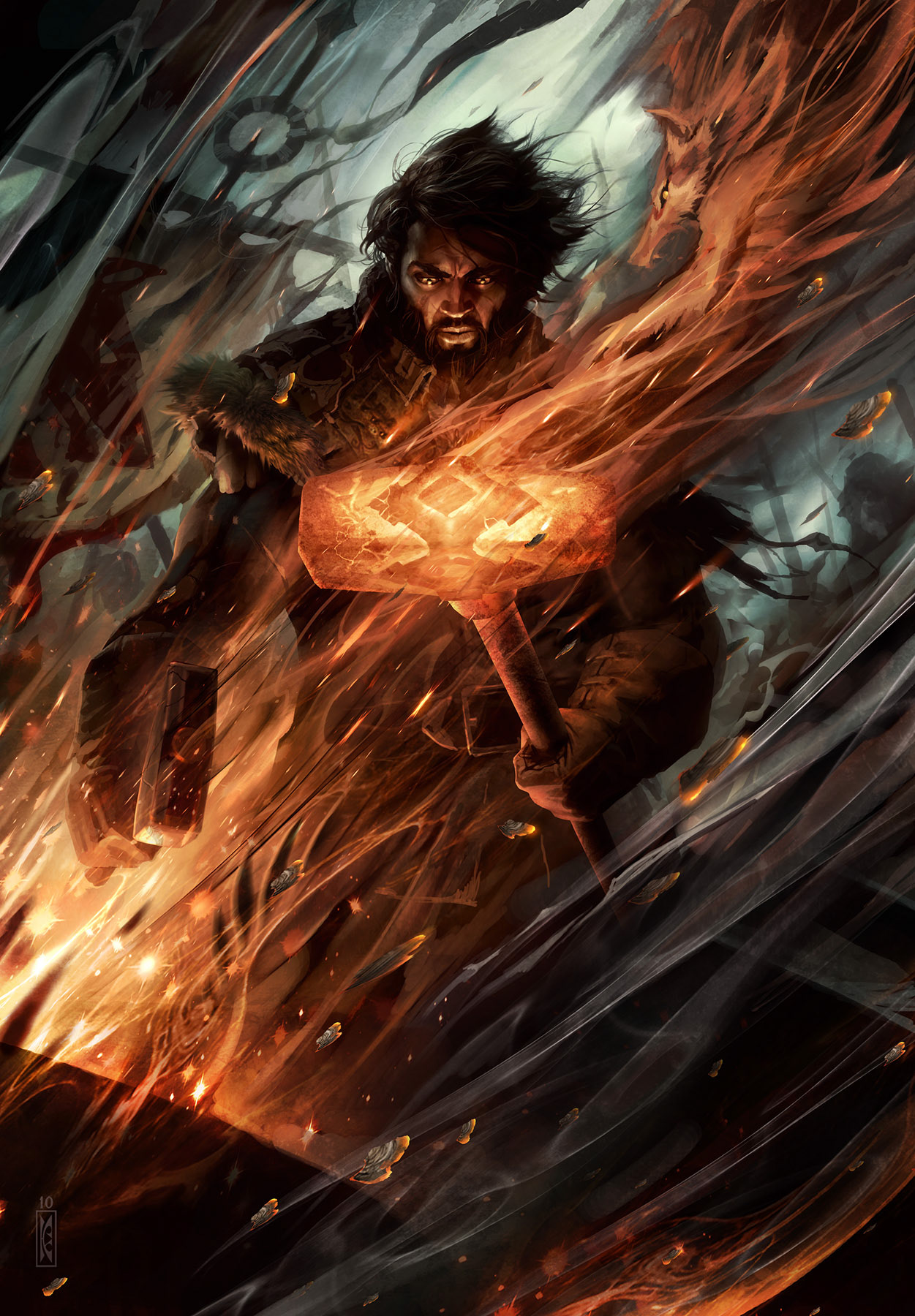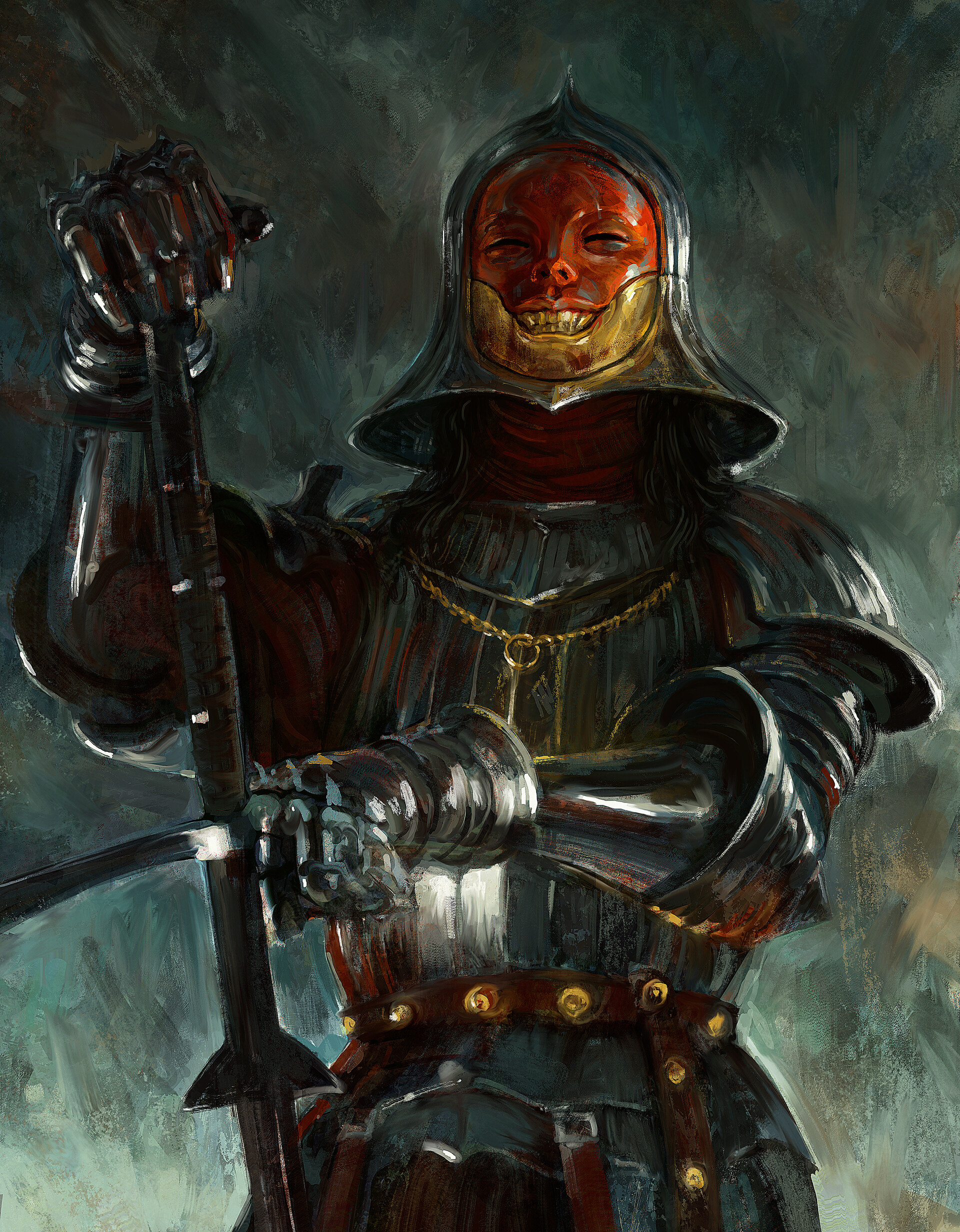I burned my life, that I might find
A passion wholly of the mind,
Thought divorced from eye and bone,
Ecstasy come to breath alone.
I broke my life, to seek relief
From the flawed light of love and grief.
—Louise Bogan, 'The Alchemist'
A follow-up to an earlier post of mine; another patron, another pact.
Be it a Great Beast of the Sea, a mighty kraken, or a primordial of the Elemental Ocean, you have bound yourself to some ancient being from creation’s first days. For some masters, you may act as their eyes and ears on the realm of land, advancing whatever esoteric goals they seek; for others, your "master" may be so alien as to be unaware of your mere existence.
Perk: You can communicate with creatures of the water as fluent, and move through marshes and bogs unhindered.
Drawback: You cannot drink fresh water; derivatives thereof—tea, beer, &c—are fine.
The boon of your pact looks as it should for an object of the oceans—dark blues and greys, seaweed dangling off of it, a thin layer of slime, &c.
Those who swear themselves to a being of the Deep carry a sign of their pact. The mark you bear takes the form of...
1. Webbed hands and feet.
2. Translucent, mildly luminescent skin.
3. Fish-like scales.
4. Visible gills.
5. Constantly damp & oily skin.
6. No eyelids.
7. Unnaturally pointed teeth.
8. Unusual pallor.
9. Bulbous swim bladders.
10. Spit solidifies slowly after contact with air.
Mishaps:
1. 1d6 damage to you.
2. MD only return to your pool on a 1-2 until sunrise.
3. Random marine-related mutation for 1d6 rounds. Permanent on a failed save.
4. Lungs temporarily fill with water for 1d6 rounds. Can't speak or cast spells.
5. Grow incredibly thirsty. Must consume a ration at next rest, and receive no healing from it.
6. Vomit 1d100 litres of seawater.
Dooms:
1. Body empties of moisture for 24 hours. Inventory filled with exhaustion, and can't cast spells.
2. As above, but for a week.
3. Tide rises where you stand. 1d20+5 assorted merfolk, water elementals, and bloated corpses appear to drag you out to sea. Fend them off or die.
Pact: The Tome
Where other practitioners take paths of simple-minded violence or request vain gifts, your boon of choice was knowledge—power in its purest form, at least in your eyes. You need not runes nor wands nor incense; you are a spellcaster, capable of imposing your whims on the world as you desire.
A: Spellcasting: You may expend MD to change the world around you, wielding the powers described below. For each Working you perform past the first, add an additional Instability Die—they do not contribute to [dice] or [sum], but do count for the invocation of Mishaps and Dooms. This count resets each sunrise, though a warlock may voluntarily roll extra ID to further empower their workings.
Harm: Deal [sum]+[dice] damage to any target you can see; creatures may Save to negate. This takes a pact-appropriate form—a blast of fire, a sudden gust of lacerating wind, the howling screams of damned souls.
+1 ID for each other Working you've done since sunrise
+1 ID for each additional target
Alter: Make a declarative statement about any target you can see you can see. That statement becomes true for [dice] rounds. It cannot cause damage (Harm), create a new object (Create), or move the target; creatures may Save to negate.
+1 ID for each other Working you've done since sunrise
+1 ID for each additional target
+1 ID to affect an area the size of a wagon
+2 ID to affect an area the size of a cottage
+3 ID to affect an area the size of a village
+1 ID to make the effect last [dice] minutes
+2 ID to make the effect last [dice] hours
+3 ID to make the effect last [dice] days
Create: Create a creature or object. It lasts for [dice] rounds, and begins person-sized or smaller (with 2 or fewer HD if a creature). Creatures created cannot inflict damage and objects may not inflict magic damage or create permanent effects, but may be magical—you can make a flying carpet, but a healing potion will only last the duration listed. A regular sword, not BITTER MARTYR WOE, a well-learned heavy langmesser matte, with a silvered edge that cuts through fire.
+1 ID for each other Working you've done since sunrise
+1 ID for each additional creation
+2 ID to increase the created creature's HD by 4
+1 ID to create an object the size of a wagon
+2 ID to create an object the size of a cottage
+3 ID to create an object the size of a village
+1 ID to create a magical or otherwise notably strange object
+1 ID to make the creation last [dice] minutes
+2 ID to make the creation last [dice] hours
+3 ID to make the creation last [dice] days
A: Ancient Tongues: When you come across a fragment of some long-forgotten language—scrawled on a ruin, carved into a talisman, &c.—you have a [templates]-in-6 chance of understanding it. Not the entire language, but enough for that piece.
B: Intuitive Understanding: You can read any text—fine print included—in the time it's taken you to read this description.
C: Accurate Insight: By staring very deeply into someone's eyes, you may read their thoughts, quite literally printed on their pupils; it's there for everyone, but the text is very small (credit to Archon).
D: Spell-Theft: You may cast any spell you come across in another magic-user's grimoire or the mind of one you've killed without rolling or incurring ID. Your Mishaps and Dooms may still apply; spells cast this way once are rendered unusable.
The Magic-User to the Blade's Fighting-Man. Thanks to
Sundered for the name; here's the patron you asked for in return. Feedback appreciated, &c., &c.—more patrons and pacts to come.










